In
News
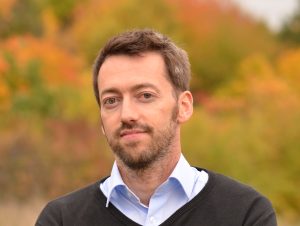 A warm welcome to our new guest Joël Glasman who joins global dis:connect in october.
A warm welcome to our new guest Joël Glasman who joins global dis:connect in october.
Joël is a Professor of African History at University of Bayreuth. He focuses on West and Central Africa in the 20th century, particularly colonialism, governmentality, humanitarianism and the production of power as framed by praxis theory and science and technology studies. His publications inquire into social classifications produced by state institutions, international governmentality and private corporations. He further engages with the theory of global history, global norms and colonialism. His last book, Les humanités humanitaires. Manuel d’autodéfense à l’usage des volontaires (2023), reflects on the practical use of the humanities.
Joël’s project At gd:c, Empire of waste, looks at imperialism as a regime of waste built on material exploitation and racial inequalities. Immobilisation, hiding and destruction of waste played a crucial role in imperial domination, as indicated by recent research on toxicity, waste dumping and radioactivity in Africa.
Continue Reading
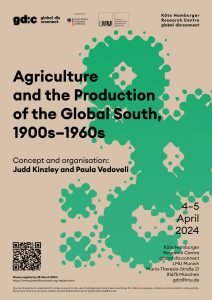 Workshop at the Käte Hamburger Research Centre global dis:connect, LMU Munich
4-5 April 2024
The importance of agriculture and extractive industries to the making of the Global South in the 20th century has been obfuscated by the resonance of modernisation theory, dependency theory and development economics since the Second World War. With this workshop, themed Agriculture and the production of the Global South, 1900s-1960s, we seek to move beyond the rigid dualism of postwar models of growth and development by excavating processes and trajectories in the Global South and Global North that reveal the importance of agriculture and extractive production to the making of our contemporary world.
Organisers: Paula Vedoveli, Judd Kinzley
Please click here to download the programme.
Please register here by 28 March.Programme Continue Reading
Workshop at the Käte Hamburger Research Centre global dis:connect, LMU Munich
4-5 April 2024
The importance of agriculture and extractive industries to the making of the Global South in the 20th century has been obfuscated by the resonance of modernisation theory, dependency theory and development economics since the Second World War. With this workshop, themed Agriculture and the production of the Global South, 1900s-1960s, we seek to move beyond the rigid dualism of postwar models of growth and development by excavating processes and trajectories in the Global South and Global North that reveal the importance of agriculture and extractive production to the making of our contemporary world.
Organisers: Paula Vedoveli, Judd Kinzley
Please click here to download the programme.
Please register here by 28 March.Programme Continue Reading






 Our new podcast has just launched. It (maybe unsurprisingly) looks at the topic of globalisation by examining the intricate web of connections and disconnections that define our world. All our episodes are based on current research done at or around the Käte Hamburger Research Centre global dis:connect and delve deep into the social significance of globalisation processes. The first two episodes look at the role of the telegraph in globalisation and at Empire and climate change in Central Asia. New episodes will come out every two weeks.
Our new podcast has just launched. It (maybe unsurprisingly) looks at the topic of globalisation by examining the intricate web of connections and disconnections that define our world. All our episodes are based on current research done at or around the Käte Hamburger Research Centre global dis:connect and delve deep into the social significance of globalisation processes. The first two episodes look at the role of the telegraph in globalisation and at Empire and climate change in Central Asia. New episodes will come out every two weeks.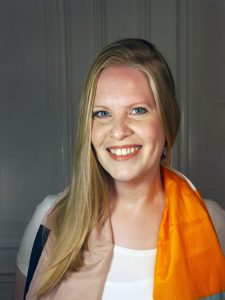 We are thrilled to announce that
We are thrilled to announce that 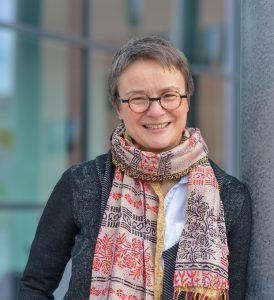 A warm welcome to our new fellow Yvonne Kleinmann who joins global dis:connect in early October.
Yvonne Kleinmann is a professor of Eastern European history and director of the Aleksander Brückner Center for Polish Studies at Halle University
Her project at gd:c, Communicating Constitutions: A Cultural and Entangled History of Poland’s Basic Orders, deals with Polish constitutional history from the 14th century to the present from the angle of cultural history and (transnational) entanglement.
A warm welcome to our new fellow Yvonne Kleinmann who joins global dis:connect in early October.
Yvonne Kleinmann is a professor of Eastern European history and director of the Aleksander Brückner Center for Polish Studies at Halle University
Her project at gd:c, Communicating Constitutions: A Cultural and Entangled History of Poland’s Basic Orders, deals with Polish constitutional history from the 14th century to the present from the angle of cultural history and (transnational) entanglement.
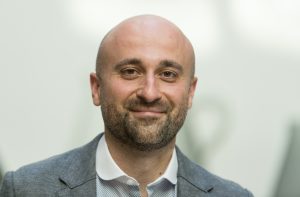 In early October, Matthias Leanza joins global dis:connect as a new fellow. Welcome to Munich, Matthias!
Matthias Leanza is a historical sociologist specialising in empires, colonialism and nation-state formation and is a senior lecturer at the University of Basel.
At global dis:connect Matthias will complete his current book project on the legacy of German colonialism. Drawing on a wide range of sources from European and African archives, the study shows how and why the German overseas empire helped consolidate the nascent German nation-state. Germany soon lost its colonies, but their effects on the country persisted, leaving a complex legacy.
In early October, Matthias Leanza joins global dis:connect as a new fellow. Welcome to Munich, Matthias!
Matthias Leanza is a historical sociologist specialising in empires, colonialism and nation-state formation and is a senior lecturer at the University of Basel.
At global dis:connect Matthias will complete his current book project on the legacy of German colonialism. Drawing on a wide range of sources from European and African archives, the study shows how and why the German overseas empire helped consolidate the nascent German nation-state. Germany soon lost its colonies, but their effects on the country persisted, leaving a complex legacy. 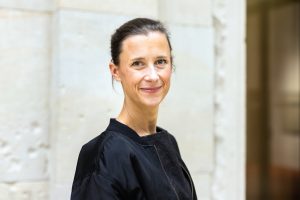 In October Valeska Huber commenced her term as a fellow at global dis:connect. Welcome.
Valeska Huber is a professor at the University of Vienna. She has led an Emmy Noether Research Group and has been a fellow at the German Historical Institute London. She is particularly interested in the mutual interdependence of opening and closure.
During her fellowship at global dis:connect, she will work on a monograph about the 20th-century dream of universal literacy, tracing the Each One Teach One method propagated by US missionary Frank C. Laubach and applied around the globe from the Philippines to Cuba and Brazil.
In October Valeska Huber commenced her term as a fellow at global dis:connect. Welcome.
Valeska Huber is a professor at the University of Vienna. She has led an Emmy Noether Research Group and has been a fellow at the German Historical Institute London. She is particularly interested in the mutual interdependence of opening and closure.
During her fellowship at global dis:connect, she will work on a monograph about the 20th-century dream of universal literacy, tracing the Each One Teach One method propagated by US missionary Frank C. Laubach and applied around the globe from the Philippines to Cuba and Brazil.  A warm welcome to our new guest Joël Glasman who joins global dis:connect in october.
A warm welcome to our new guest Joël Glasman who joins global dis:connect in october.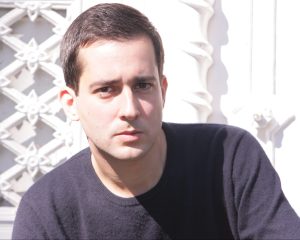 In September David Motadel commenced his term as a fellow at global dis:connect. Welcome.
David Motadel is an associate professor of international history at the LSE. A former Gates Scholar at Cambridge, he has held visiting positions at Harvard, Yale, Oxford, Sciences Po and the Sorbonne.
At gd:c he is working on a global history of Europe’s empires around the Second World War, 1935-1948, exploring the history of the war in the imperial world, its impact on colonial subjects; the history of the colonial soldiers who fought in Europe’s armies; the history of anti-colonial movements during the war, from the Viet Minh to the Quit India movement; and the war’s impact on the end of empire and twentieth-century world order.
In September David Motadel commenced his term as a fellow at global dis:connect. Welcome.
David Motadel is an associate professor of international history at the LSE. A former Gates Scholar at Cambridge, he has held visiting positions at Harvard, Yale, Oxford, Sciences Po and the Sorbonne.
At gd:c he is working on a global history of Europe’s empires around the Second World War, 1935-1948, exploring the history of the war in the imperial world, its impact on colonial subjects; the history of the colonial soldiers who fought in Europe’s armies; the history of anti-colonial movements during the war, from the Viet Minh to the Quit India movement; and the war’s impact on the end of empire and twentieth-century world order.  A warm welcome to our new fellow Günther Sandner who joins global dis:connect in early September.
Günther Sandner is a political scientist and historian. He works as a research fellow at the Institute Vienna Circle (University of Vienna) and teaches civic education extramurally. His research includes the history of logical empiricism and Isotype.
His project at gd:c, Following Isotype: visual languages and universal symbols in the decades after 1945, deals with projects that aimed to overcome the active absence of a universal language and to establish one with the help of pictures, graphics, symbols and pictograms. Its focus is on the 1950s and 1960s.
A warm welcome to our new fellow Günther Sandner who joins global dis:connect in early September.
Günther Sandner is a political scientist and historian. He works as a research fellow at the Institute Vienna Circle (University of Vienna) and teaches civic education extramurally. His research includes the history of logical empiricism and Isotype.
His project at gd:c, Following Isotype: visual languages and universal symbols in the decades after 1945, deals with projects that aimed to overcome the active absence of a universal language and to establish one with the help of pictures, graphics, symbols and pictograms. Its focus is on the 1950s and 1960s. 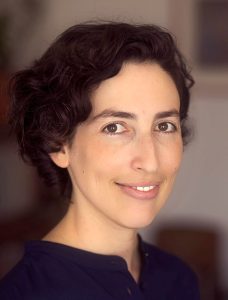 In early September, Ayala Levin joins global dis:connect as a new fellow. Welcome to Munich, Ayala!
Ayala Levin is an associate professor of architectural history at the University of California, Los Angeles. Ayala specialises in architecture and urban planning in postcolonial African states with interest in the production of architectural knowledge as part of north-south or south-south exchange.
At global dis:connect Ayala will research how U.S. planners sought to reorganise rural spaces in post-independence African states to curb urban migration.
In early September, Ayala Levin joins global dis:connect as a new fellow. Welcome to Munich, Ayala!
Ayala Levin is an associate professor of architectural history at the University of California, Los Angeles. Ayala specialises in architecture and urban planning in postcolonial African states with interest in the production of architectural knowledge as part of north-south or south-south exchange.
At global dis:connect Ayala will research how U.S. planners sought to reorganise rural spaces in post-independence African states to curb urban migration.